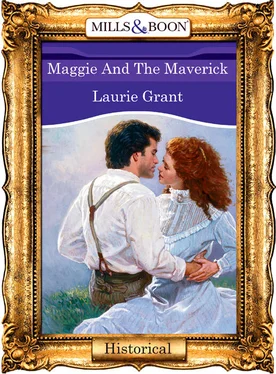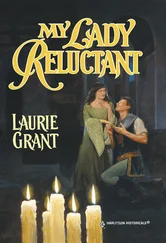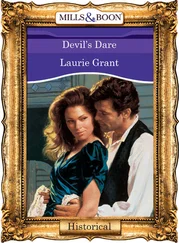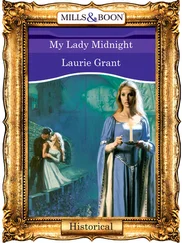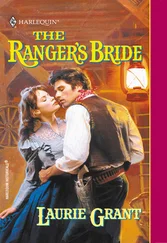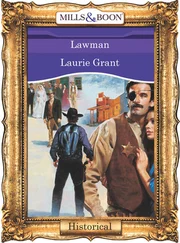“Nonsense, sir. The door can be locked, can’t it? Having upstairs quarters will be very handy when we put the paper to bed late at night, as we will probably be doing tonight,” she said, then was amused to see him blush at the phrase.
“Miss Harper, perhaps all Yankee women speak as you do, but I’ll remind you to keep a civil tongue around my son,” he snapped, though Johnny had finished his pie and was once more pursuing a fly on the window glass.
She couldn’t help but laugh. “Mr. Devlin, that’s a perfectly usual term in the newspaper business,” she said, “not a lewd phrase at all. It means finishing that particular edition, and shutting down the press, and—”
“I can guess that,” he interrupted. “Just watch how you talk, if you please. Ah, there you are, Sweeney,” he said, as the telegrapher rushed in. “Were you able to get an answer from your source in Austin?”
“Yeah, I got lots a’ details for ya, Mr. Devlin,” said Sweeney, beaming with importance. “It’s sure ‘nough gonna set the folks in town on the boil, that’s fer dang sure!” Then he realized Maggie and the child were sitting there, and he clapped his bony hand over his mouth. “Oh, pardon me, miss.”
Maggie could tell her employer longed to inform Sweeney that her language could be much coarser than his “dang,” but he restrained himself. “Think nothing of it,” she murmured, and then the bell over the door tinkled again, announcing Jovita’s return.
“Eet ees time to come weeth me, niño,” the Mexican woman told Johnny as she entered, holding out her hand to the boy. “After your nap you can help me figure out what to make for supper for your papa, yes?”
“That won’t be necessary, Jovita. I won’t be home for supper tonight In fact, I may be very late.”
“But you must eat, señor, you and the señorita.”
“You fuss like a mother hen, Jovita, but I promise I won’t forget to feed Miss Harper. I’ll fetch us sandwiches from the hotel or something. Now go on home with Johnny. I have a paper to get out”
Maggie could see he was fairly fidgeting with impatience to get started. Well, for all his faults, at least Garrick Devlin was an eager newspaperman, and she could forgive a lot in the face of that. She remembered when the stories she’d been writing for her father’s newspaper had been allimportant to her, too. That had been before Richard, of course. Could she possibly regain her enthusiasm, working for a man who obviously hadn’t yet finished fighting the Civil War?
“All right, señor,” Jovita said. “Well, if Papa must be late tonight, Johnny, what would you theenk of going to visit your tio Cal and tia Livy?”
“Sí Jovita! See, Papa, she’s teachin’ me Mexican!” Johnny boasted.
“So I hear,” Garrick said approvingly. “I’ll see you later, son,” he added, but his wave was distracted as he snatched the paper, with its dots and dashes and the telegrapher’s transcription above it, from Sweeney. “Thanks, Sweeney. Remember to keep this quiet, will you?”
“You bet, Mr. Devlin. Nice meeting you, Miss Harper,” said the telegrapher as he backed out the door.
“Nice meeting you, too, Mr. Sweeney. Thank you for your quick work,” she added, and saw the man’s face light up as he exited.
And then she was alone with Devlin.
“Well, now you have two males in your thrall, my son and Sweeney,” commented Devlin sourly behind her. “Stop batting your eyelashes and take your bags on upstairs, if you’re still determined to room there. Change into something you won’t be afraid to get ink on, Miss Harper.”
“I’m sure I don’t know what you mean, Mr. Devlin,” she retorted with some spirit. “But never mind—I promise never to bat my eyelashes in your direction. Give me five minutes to change my clothes and I’ll be back, ready to work,” she said. Picking up her two heavy carpetbags, she headed for the stairs. She hoped five minutes would be long enough to cool both their tempers so that they could get some work done!
The room was small, and sparsely furnished with a bedstead, a chest of drawers, holding a washbasin and pitcher, and a table with a single, rickety-legged chair. A cloudy mirror hung above the chest. There was one window, which looked out over a back street lined with small houses, some of which were little more than rude shacks. Not exactly a scenic view, she thought. She would need to fashion some curtains for privacy at night. And no doubt the room, which was now delightfully airy with the spring breeze blowing through the open window, would be hot as Hades come summer, but at least it was hers alone.
Latching the door behind her, Maggie set her bags down on the bed and pulled out her workday clothes, a skirt and waist of a navy blue so dark it looked black except in bright sunlight. It had been washed and re-dyed many times, but ink stains hardly showed on it. Then, staying away from the window, she stripped off her traveling clothes and hung them on pegs on the back of the door. There would be time later to arrange her garments in the chest of drawers.
Some thoughtful soul—impossible to think it could have been Devlin—had put water into the pitcher, and she poured some onto a towel and used it to wash her face. Feeling refreshed, she combed out her hair and braided the fiery, curly strands.
Garrick Devlin could hardly be more different from the kindly, middle-aged man she had imagined, Maggie thought as she coiled the braid at the nape of her neck with a few hairpins. She had been expecting someone like her father, she realized, someone with James Harper’s gentle mien if not his looks.
She estimated Garrick Devlin to be anywhere from his mid-thirties to forty years of age, judging by the lines engraved around his eyes and mouth and the silver mixed into his dark hair. But his cynical, touchy disposition might make him seem older than he truly was. His face was a lean, hawkish one, with high cheekbones, a long, wellshaped nose and narrow eyes of that piercing blue that seemed an echo of the Texas skies. There was an impossibly arrogant set to his mouth that belied the weakness suggested by the cane he kept at his side.
All told, it was a stubborn, disagreeable face, at least when he looked at her—and yet she had seen that face change when he talked to Johnny. She had seen that he could smile, and that his smile transformed the rest of his tense features, relaxing them and making him look years younger and much more approachable—even handsome! she was surprised to realize.
Well, she had no further use for handsome, that was cer tain. All she hoped for was to be able to work with this difficult man to produce a newspaper they could both be proud of. She could teach him much, if he would let her. If only his stiff-necked pride didn’t get in the way! It wouldn’t be easy, since he despised what she was and everything she stood for, but she could at least try.
Goodness, she’d better stop pondering over her employer and get back downstairs! It was surely more like ten or fifteen minutes since she’d come up here!
“Took you long enough,” groused Devlin, barely glancing up as she reached the bottom of the stairs. He was hunched over the table, a stubby pencil grasped in his right hand, and as she approached, she saw that he’d already covered nearly a full page with his untidy scrawl. She saw him stop and glance at the telegraph transcription, and then his pencil began to race over the paper again.
“I’m sorry, sir, I—”
“Here,” he said, thrusting the now-filled sheet of paper at her. “You can start setting the type for this page.”
The first thing she was going to have to learn how to do was read his writing, Maggie thought with dismay as she peered at the slanting scrawl. It was nothing like the neat copperplate of his letter to “M. L. Harper.” Had he gotten the local schoolmarm to write that letter for him?
Читать дальше
